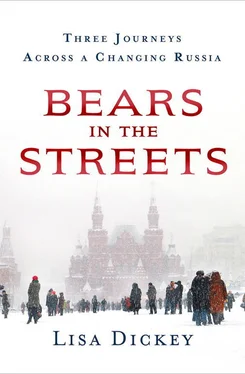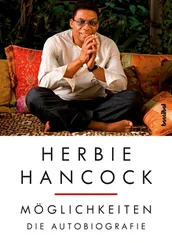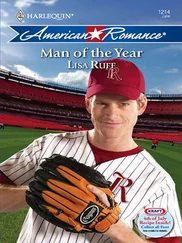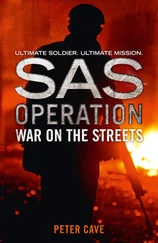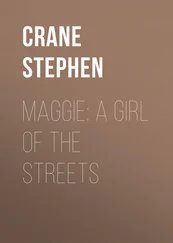I asked her whether she’d always had such strong religious beliefs, and she repeated something she’d told me 20 years earlier. “My grandmother taught us to believe,” she said, “but she told us never to tell anyone else.” Nina had been baptized as a child, but she’d never been particularly devout until 2007, when she took a trip to Israel. “I wanted to see where Christ had walked,” she told me, her eyes shining. “After that trip, I felt differently.” Since then, she’d been back to Israel three more times.
We were midway through dinner when Boris arrived. He hugged his mother warmly, but the intimate conversation I’d been having with Nina predictably swerved toward bigger, more serious issues. Boris started talking about what was wrong with Russia today, bemoaning the fact that the country wasn’t manufacturing anything. “We’re not building rockets, not making new science,” he said. “All we have is oil!” He told me about a new movie being produced by Americans, in which audio from Yuri Gagarin’s first space flight was spliced together with views of what the cosmonaut would have seen as he was orbiting. “Why are the Americans the ones doing this?” Boris asked. “Why aren’t the Russians doing it? Why aren’t we celebrating our accomplishments?”
Finally, Nina interjected. “OK, enough with the criticism,” she said, gently touching her son’s arm.
“It’s not criticism,” he responded. “It’s observation.” Boris was simply brimming over with desire to discuss every big global topic; it was as if his brain was filled to bursting, and he had to give vent to his thoughts or it might actually explode. The subject next turned to Ukraine, and it turned out that he, unlike the vast majority of Russians I’d spoken with, was no fan of Putin’s actions there. In this, he disagreed with Nina, who believed Russians were being persecuted in Crimea, and Putin was merely taking steps to protect them. But Boris saw Putin as an autocrat, and he groaned when I relayed my conversation in Chelyabinsk, when Sergei and Lyuba had told me there was no such thing as Ukraine.
Of all the Russians I’d spoken with on the trip, Boris was the most outspoken in his dislike for Putin. “Why do you think people love him so much?” I asked.
“Because it’s fun to cheer for the winning team,” he replied. It was his most succinct, and thought-provoking, utterance yet.
* * *
Two days later, as I was walking down Liteiny Prospekt, I saw a poster showing a man in red pants and a plaid shirt, riding a bear like a horse. Across the top were the words HOW I BECAME RUSSIAN. It was—I kid you not—a new half-hour sitcom about “the adventures of an American in Russia.” Because our adventures in Russia naturally involve bears.
I didn’t get a chance to see the show, but the plot, as described on the Internet Movie Database, is this:
Contemporary Moscow. An American journalist, Alex Wilson (Mateusz Damiecki), is sent by his employer, The American Post , one of the largest newspapers in the world, on a long-term assignment in their Moscow office. In addition to his job there as an editor, Alex starts a blog, where he tries to answer important questions about Russians, Russian culture, and the mythical and elusive Russian soul, such as: Why is useless junk stored on the balcony? Why is there a package in every Russian home that contains other packages? And why do you have to bully people to avoid fights?
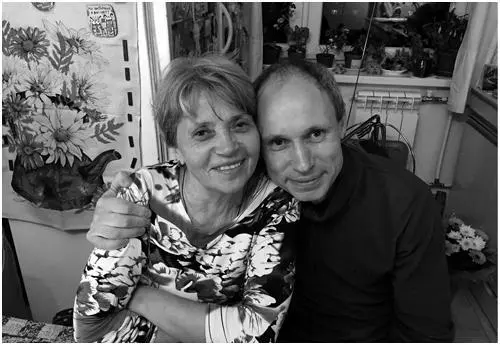
Boris and Nina, in Nina’s kitchen, 2015 (PHOTO BY LISA DICKEY)
Launched in November 2015, the show soon became a hit, and it was quickly picked up for a second season.
* * *
On the afternoon of November 14—the day after terrorists attacked Paris, killing more than a hundred people across the city—I had a Skype call with now-26-year-old Vanya. He’d been living abroad for the past few years, first in Bologna, Italy, and now in the Netherlands, where he was studying structural engineering. Given how eager he’d been a decade earlier to live and work in Russia, I was curious how he felt about having been in Europe for the past few years.
“For the first six months, I was aiming to go back to Russia after graduating,” he told me, speaking flawless English. “But I’ve realized it would be better to use my diploma here for at least two or three years, to gain experience.”
Vanya had decided to specialize in structural engineering for the oil industry, since that was Russia’s main economic driver. “I’m taking offshore engineering courses,” he said, “but it’s really frustrating now, because oil prices have dropped, and there are basically no investments in this field, particularly in Russia. It’s just easier to find work outside of Russia.”
So, in light of what he’d told me as a 16-year-old, why had he chosen to study in Europe in the first place? “Because I felt that the Russian civil engineering market was closed,” he said. “We don’t design anything, and we don’t build anything abroad in comparison to other countries. I wanted to take this opportunity to use my skills not just in the country where I was born, but somewhere else.” Yet he reiterated that, ultimately, he wanted to live in Russia. “My generation doesn’t want to run away from our country. We want to stay there and do good things.”
As news of the Paris attacks was flooding the airwaves, I asked him about the threat of terrorism in today’s Russia. “They haven’t made any official statements about the plane that crashed in Egypt,” he said, “but there’s a high probability that it was a terrorist attack.” He sighed heavily. “It’s terrible. I don’t know where these ISIS guys have the money coming from.
“I have a Spanish friend here who studies history and archaeology,” he continued. “He’s a Stalinist. We fight a lot about that. But he just left me a voice mail this morning, saying, ‘Russians should consolidate in Syria and kill those guys, like you did in World War II and killed the Germans.’ They hear the news from Syria, that we’re bombing ISIS locations, and they’re relying on us to fight the ISIS guys. But as soon as I hear ‘land operation,’ I think, There will be Russian people involved in this , and I don’t want that.”
I read him parts of the 2005 interview with him and his high school friends, and he chuckled. “It’s funny to hear this interview now,” he said. “The school we were attending was the Gymnasium for Global Education, the only one in St. Petersburg. They were trying to develop this global way of thinking, teaching us tolerance from the first grade.
“But since I moved to Europe, I’ve come to understand that people are tired of being tolerant here,” he said. “I hear a lot of jokes, going to bars with students in Bologna, in the heart of Italy. It’s a city of workers, and all the jokes are either racist or homophobic.”
Vanya’s plan was to graduate in the fall of 2016, after which he’d look for a job in either Europe or Asia. “There’s no point coming back with a European diploma—Russian employers won’t even know what the University of Bologna is,” he said. He figured he was most likely to find a good job in Asia, though that was much farther away from his family than he preferred.
“It would be best to be an expert for a Western company and work in St. Petersburg,” he told me. “But the sanctions have put a fence between Western industry and Russian industry. I’d like to be an employee of Shell and work in St. Petersburg, but there are so many things in the way—oil prices, the krizis , the political situation. The sanctions will be in place for years, and they do have an effect.”
Читать дальше
